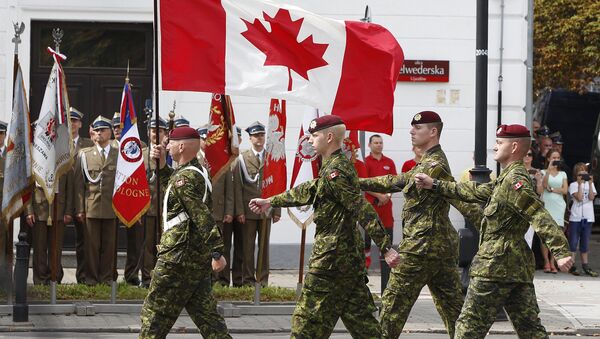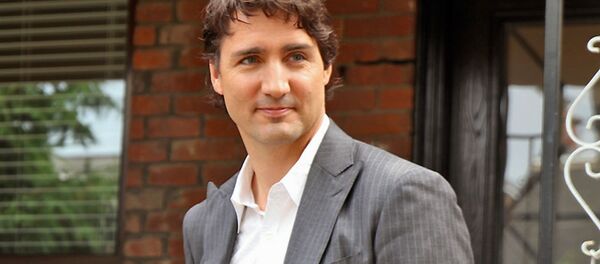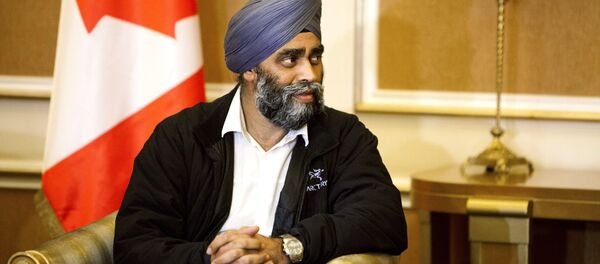"Clearly, every NATO member does what the United States says," the deputy director of the Moscow-based Institute for US and Canadian Studies said. "NATO is Washington's instrument [of power projection] in Europe and Canada is a major part of this" arrangement.
Yet Canada's commitments under the North Atlantic Treaty are in no way related to its ties with Russia, he added. The country's relations with Russia improved in the months since Prime Minister Justin Trudeau came to power.
"After a decade at daggers drawn, the two largest countries in the world are on speaking terms again. Our government has abandoned Stephen Harper's policy of vocal disdain and the attempted isolation of Russia," Christopher Westdal pointed out.
"I think that we will tell [the Canadians] everything [on NATO's battalion] through diplomatic channels," the analyst noted. "When it comes to the desire to mend [bilateral] relations, it will remain in place. The two [processes] are not and cannot be mutually exclusive."
Earlier this year, the North Atlantic Alliance announced that it will deploy four multinational battle groups to Estonia, Latvia, Lithuania and Poland. Canada, Germany, the United Kingdom and the US will be tasked with providing the bulk of personnel for each battalion.
Thank you, Canada. All four battalions for #NATO's east now have a lead nation.Thanks also to GER, UK & US. Strong transatlantic commitment.
— Jens Stoltenberg (@jensstoltenberg) 30 июня 2016 г.
"Thank you, Canada. All four battalions for NATO's east now have a lead nation. Thanks also to Germany, the UK and the US," the bloc's Secretary General Jens Stoltenberg tweeted, praising the four nations for their "strong transatlantic commitment."
The measure will be formally approved at NATO's upcoming landmark summit in Warsaw on June 8-9. It is part of a series of steps aimed at enhancing the bloc's military capabilities on its eastern flank in response to what NATO officials view as a threat emanating from Russia.
Zolotarev echoed this sentiment, saying that the bloc's activities, including Canada's presence in the Baltic region, increase the risk of accidents during war-games turning into crises. "This could lead to fallout. But in general a possibility of a conflict between Russia and NATO is out of the question," he observed.
The analyst further added that NATO's increased military presence on its eastern flank "is a means of exerting political pressure on Russia."



